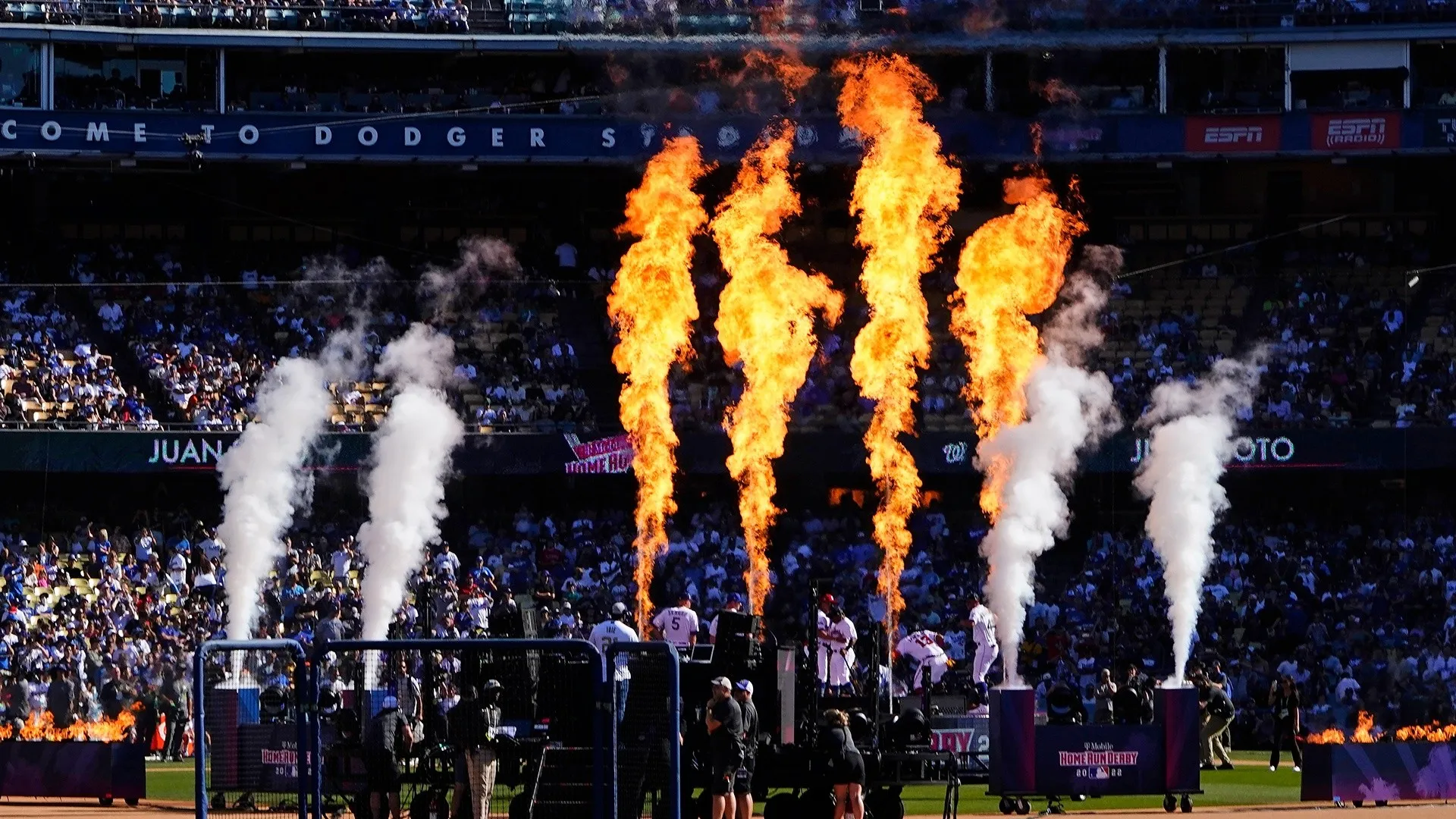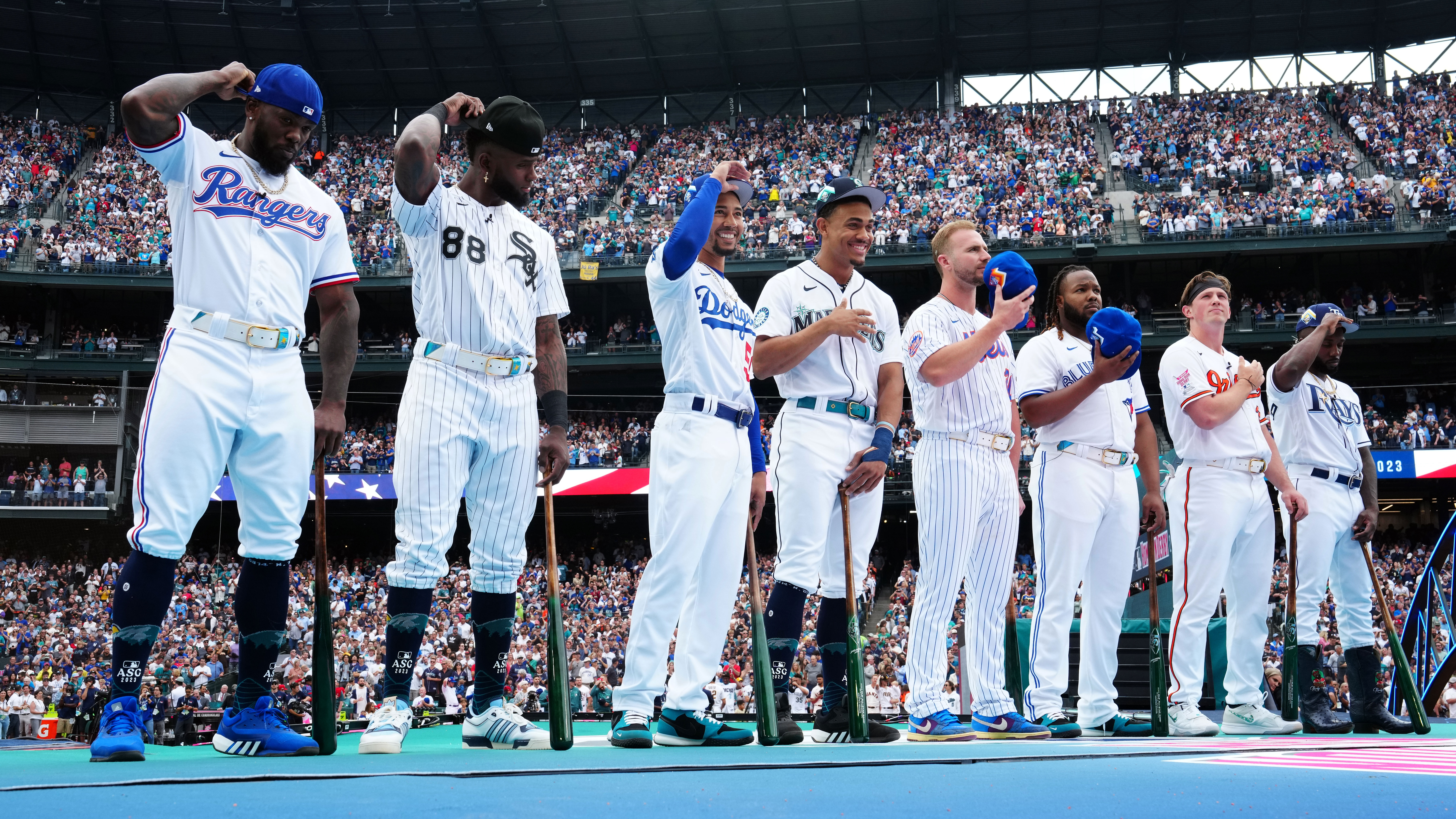Cubs manager David Ross was greeted by Jon Lester and Tyler Chatwood at Wrigley Field Saturday. The pair of starting pitchers, who are scheduled to take the mound in the next couple days, had a bone to pick with him.
Why had he let Kyle Hendricks pitch a complete game the night before?
"They related it to golf," Ross said, laughing, "and you’ve got the zero-handicap guy and everybody’s a 15 after that.”
But Lester and Chatwood weren't the ones who had to immediately follow that Hendricks gem on Opening Day. That task fell to No. 2 starter Yu Darvish, who took the loss in his first start of the season as the Brewers topped the Cubs 8-3 to even the series. The main difference between his outing and Hendricks' complete game shutout the night before was efficiency.
Click to download the MyTeams App for the latest Cubs news and analysis.
Over four innings, Darvish allowed three runs on six hits. He said he wants to work on his splitter, changeup and hard cutter before his next start. But his biggest battle Saturday was against his pitch count.
“I was expecting I could go more than 80 (pitches) today,” said Darvish. “But almost every inning I was throwing 20 pitches, so that’s why Ross and (pitching coach) Tommy (Hottovy) worried about my arm health, maybe.”
The earlier a Cubs starter leaves a game, the longer it’s in the hands of an unproven Cubs bullpen. Hendricks avoided that altogether Friday, getting through nine innings in 103 pitches.
That’s not Darvish’s style. He tends to work deep counts, using his vast array of pitches. He normally would have had all spring training to ramp up, instead of a three-week Summer Camp.
“My strength is 100 percent,” Darvish said. “Just, I have a lot of pitches, so I have to figure out a lot of things that other people (don’t). So, I still have to work on a couple things, but I’m almost there.”
On Saturday, Darvish was steady enough through the first three innings. The only run he allowed was technically earned, but not his fault. Milwaukee’s Lorenzo Cain stood on second base with one out in the second inning. Darvish did his job and got Ben Gamel to hit a ground ball to shortstop Javy Báez.
Báez forced Cain into a rundown, but the play dragged on, and the Cubs left first base wide open. Both runners ended up safe. Instead of two outs and a runner on first, Darvish stepped back onto the mound with one out and runners on first and second. After Orlando Arcia popped out to second base, Eric Sogard hit an RBI single, made possible by the botched rundown.
“I know it’s a tough play,” Darvish said of the pickle. “But I’m trying to get two more outs, so I was so disappointed that I gave up a base hit to Sogard.”
Just when Darvish showed signs of getting into a rhythm, needing only 14 pitches to strike out the side in the third inning, he regressed. The Brewers’ next two runs were courtesy of a fourth-inning triple by Gamel.
Darvish still may have salvaged the start if his pitch count wasn’t so high. Through four innings he threw 73 pitches, which was still about 10 short of his limit.
“He battled through some innings,” Ross said. “They put some really good at-bats on him. Did some labor in there early on in some innings, and so I wanted to get him out of there. It’s hot out there. You could tell he was working hard, just not quite the finish that I think he wanted with his pitches.”
The Cubs trailed by two runs when Darvish left the game. The next five innings featured a patchwork of Cubs relievers, and the slugfest began. The Brewers’ Justin Smoak homered off Duane Underwood Jr. Christian Yelich followed up with a bomb off Brad Wieck.
“I think growth is going to be a strong point for that group,” Ross said of the Cubs' bullpen, “and there’s no way to find out until we get them in there.”


